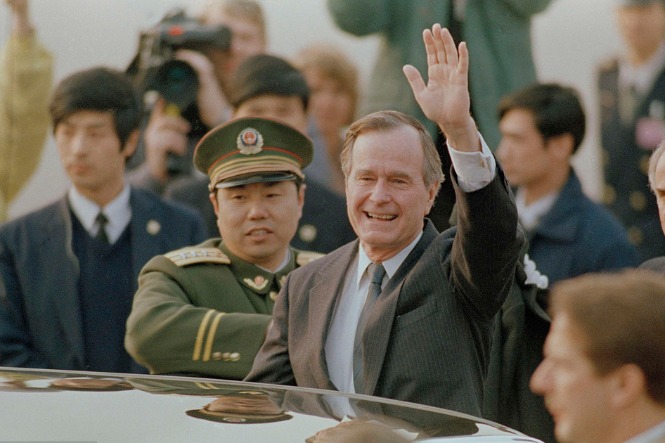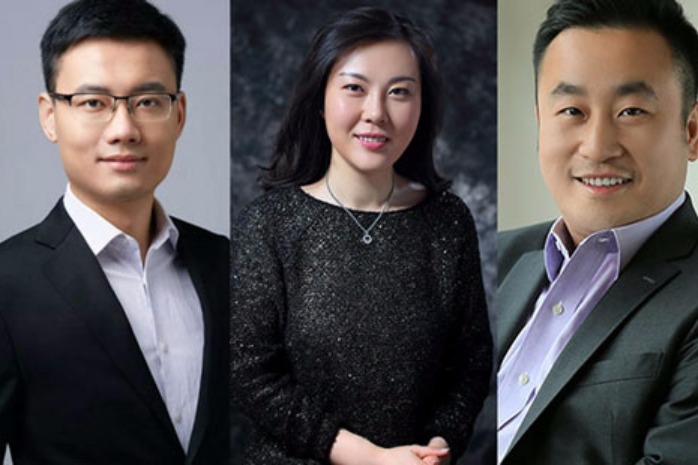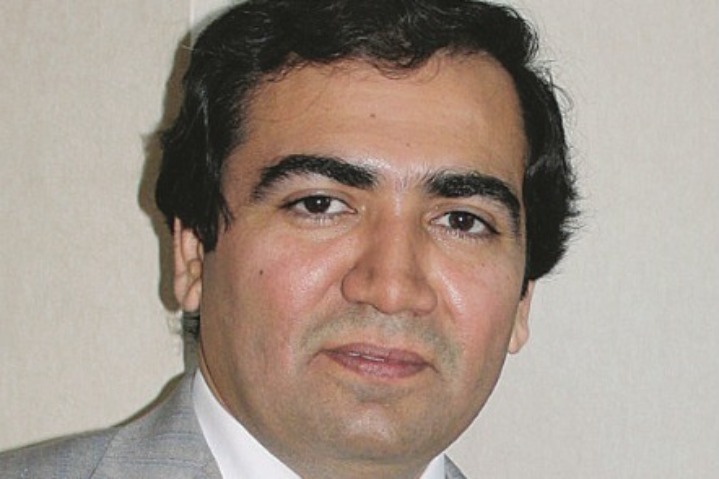Jerry Yang: Tech icon returns to startup roots
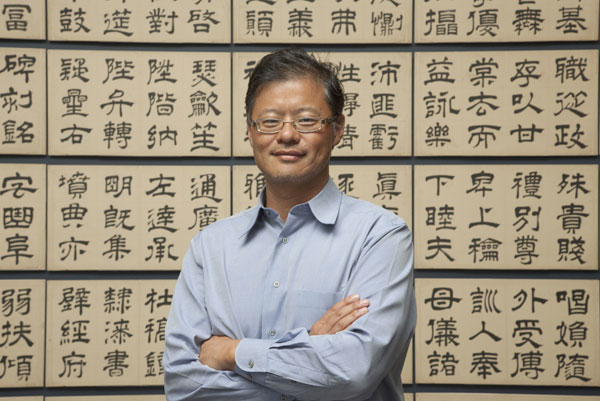 |
| Co-founder of Yahoo Inc Jerry Yang focuses these days on funding tech startups. CHANG JUN / CHINA DAILY |
Jerry Yang has left behind the pressures of running a major tech company to return to his startup roots.
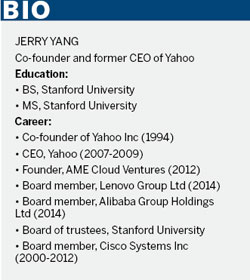 |
|
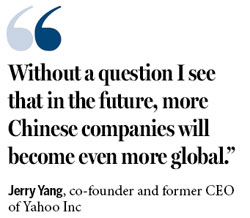
|
"I am having the time of my life learning about new trends, technologies and innovation in Silicon Valley and beyond," he said.
Currently, the focus of his company has been to help entrepreneurs build data-driven businesses.
"Most of our portfolio companies have some emphasis on data - the more data the better!" Yang said. "We also primarily focus on companies in the early stages - seed, angel, incubation. As long as that continues, I am hoping that I can be a part of helping the next generation of great entrepreneurs build some world-changing companies."
Yang also is getting more closely involved with Chinese companies in their US and global business efforts. Starting as an observer for China's leading PC maker Lenovo Group Ltd, Yang is now a board director and is confident in the leadership and management team led by CEO Yang Yuanqing.
"The other reason I joined Lenovo's board is because I feel I can learn a lot from the first Chinese technology company to become a global company," said Yang, who said Lenovo is already quite global - with a huge US-based business in North Carolina, and the announcement this week that it would soon start selling Motorola phones in China. "It is moving well beyond PCs into tablets, phones, and software services," he said.
The company that Yang said he has been "lucky to be involved with for many years is Alibaba. Clearly, the world of e-commerce continues to have massive potential."
"Without a question I see that in the future, more Chinese companies will become even more global," he said.
Yang, 46, spent his first 10 years in Taiwan before he immigrated with his widowed mom and brother to San Jose, California, in 1978.
The Chinese culture he was immersed in and the Chinese values he had been taught since childhood - persistence, resilience and perseverance, for example - "have always had a large influence on me", said Yang, who said he grew up with a good dose of family values and reading a lot of kungfu novels.
In his early 30s, Yang was an electrical engineering major at Stanford University. In 1994, he and David Filo co-created a website made up of directories of other websites and named it "Jerry and David's Guide to the World Wide Web".
The two men realized the business potential after renaming the website Yahoo! and decided to quit their doctoral studies and dedicate their energies to increasing the web portal's traffic and branching out into an extensive range of products and services.
One of the leading Internet brands and the most trafficked network on the World Wide Web, Yahoo's success led to Jerry Yang being named by MIT Technology Review in 1999 as one of the "Top 100 Innovators in the World under the Age of 35".
At Yahoo
During his two-year stint as CEO of Yahoo from June 2007 to January 2009, Yang encountered career crises as his company operated like a boat sailing against the current. Many investors and stakeholders criticized Yang for not being able to increase revenue and Yahoo's stock price, and many executives departed.
Investor discontent with Yang intensified in May 2008 after he rejected a takeover bid by Microsoft Corp, which he considered hostile. In an effort to increase its market share and compete more effectively against Google Inc in online search and advertising, Microsoft wanted to purchase Yahoo. The software giant sent then-CEO Steve Ballmer to negotiate with Yang.
Yang, determined to make the takeover as difficult as possible, asked Microsoft to raise the offer to $37 per share. Although Microsoft went to $33, which would have pumped up Yahoo's market value to $44.6 billion, Yang walked away.
Yahoo's stock price plunged as Microsoft withdrew the bid, which resulted in waves of criticism from investors directed at Yang and Board Chairman Roy Bostock for their handling of the negotiations. Later, Yang initiated a commercial-search advertising arrangement with Google, but the plan was scuttled after US authorities expressed concerns over possible antitrust issues.
In December 2008, rumors were that Yang would step down as CEO as Yahoo was actively searching for his replacement. On Jan 13, 2009, Yahoo confirmed it would hire Silicon Valley veteran Carol Bartz as CEO.
Yang left Yahoo in 2012, resigning from the board of directors and all other positions at the company, along with seats on the boards of Yahoo Japan and Alibaba Group Holdings Ltd.
Yang's legacy of business acumen and investment vision, especially his decision to have Yahoo invest in Yahoo Japan and China's e-commerce pioneer Alibaba lives on. Yang authorized a $1 billion investment in Alibaba in 2005, when the e-commerce company was in its early stages.
This past September, Alibaba had the most successful IPO in US stock market history by raising $25 billion.Yahoo's appreciating 40 percent stake of Alibaba helped drive up its stock price to about $48 per share by December, partially because of Yang's prescient investment.
Yahoo still retains a 22 percent stake in Alibaba that is worth more than $35 billion and accounts for most of Yahoo's current market value (approximately $42 billion). In 2012, Alibaba founder Jack Ma pressured Yahoo into selling a portion of the Alibaba shares, which netted the California-based company $7.6 billion.
"Personally, investing in an entrepreneur like Jack Ma and his leadership team was the key to the success," said Yang, who recently rejoined the Alibaba Board of Directors.
"I'm very excited to be part of the Alibaba Board of Directors, to help them achieve their potential in the next phase."
On innovation in China
Yang said that in the past few years, there has been a significant increase in innovation by Chinese companies. While it used to be that Chinese companies were "fast followers", now there is a lot more innovation and leadership.
"I no longer see it as ‘catching up' - rather, Chinese entrepreneurs are focusing on the massive domestic Chinese market and are innovating accordingly," said Yang. It is more of a parallel innovation track, whereby Chinese companies can take advantage of a large merchant base, growth in third- and fourth-tier cities, mobile and commerce, and a continued manufacturing advantage, he said.
In addition to Lenovo and Alibaba, companies such as Tencent Holdings Ltd and Xiaomi Corp are examples of continued innovation. Many of these companies, such as Baidu Inc, are also setting up R&D centers in the US, said Yang.
"I also continue to believe there will be tight collaboration between Silicon Valley and Chinese technology companies," he said.
Yang's advice to Chinese entrepreneurs starting new ventures has been to focus on a large market opportunity.
"Furthermore, really recruit the best talent possible," he said. "Lastly, look for strong, defensible differentiation - either through deep technology, or time to market, or tremendous ease-of-use."
On Chinese-American identity
Unlike a century ago when Chinese immigrants suffered from discrimination and mistreatment, the changing demographics of the US are such that in the next 20 years, Latinos and Asian Americans will possibly make up the majority in the population, said Yang.
In addition to technology, "We are already seeing some progress of Asian Americans in local politics, arts and business," Yang said. "Hopefully, the progress of Asian Americans advancing in all fields of society can continue."
Yang sees himself very much as American. Only in America can an immigrant from Taiwan start a business like Yahoo, he said. "I'm proud of my Chinese heritage, and I am very lucky to continue to have strong associations in China and other parts of Asia.
Yang is not only about business; he is a noted collector of calligraphy.
"I remember when I was young, in Taipei, I would take calligraphy lessons. While it was not all that fun back then, it planted a seed in me," said Yang, who started collecting calligraphy works in the late 1990s.
"I purchased my first calligraphy in 1998," he said. "Since then, my wife and I continued to collect Asian art, including more calligraphy."
Yang's collection of calligraphy was displayed in major exhibitions at the San Francisco Asian Art Museum in 2012, and at the New York Metropolitan Museum of Art in 2014.
junechang@chinadailyusa.com







